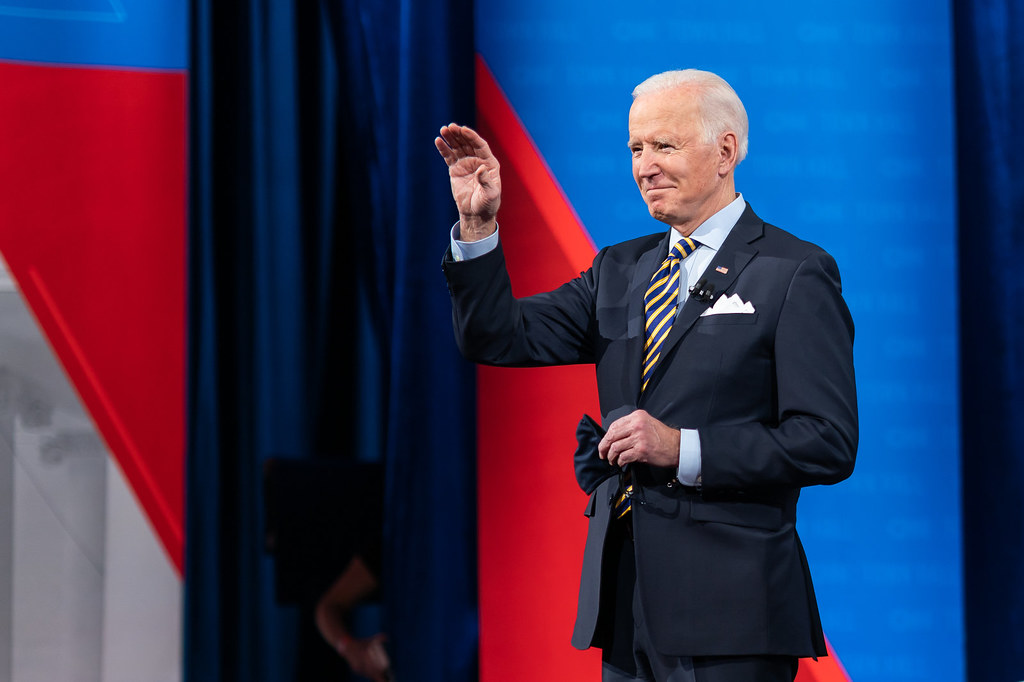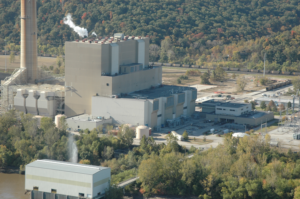14:08
Brief
News Briefs
Four big questions about the feds’ scrutiny of oil and gas leasing on public lands
In his first week in office, President Joe Biden paused new oil and gas leasing on federal lands as his administration reviewed fossil fuel development policy.
Now that Interior Secretary Deb Haaland has taken office, the administration is gearing up to begin that process. A forum comprising the energy industry, conservation groups, labor organizations and others will meet virtually March 25 in the first public event of the review.
Conservationists and climate activists have for years targeted oil and gas development on federal lands as a relatively easy way to address climate issues, and members of Congress have proposed various changes to federal oil and gas policy.
But Biden’s emphasis on climate issues during the campaign and his first days in office presents an opportunity.
“There’s significant interest in doing something different with leasing on public lands and trying to reduce the carbon emissions coming from public lands,” said David Willms, senior director of western wildlife at the National Wildlife Federation. “I don’t know what it’s going to look like or when that’s going to happen, but it’s probably appropriate that they take a hard look at the leasing process.”
Here are four big questions about the review and what might follow:
What is being proposed?
The administration has said little about what it is actually considering changing on oil and gas leasing.
But a number of academics and advocacy groups have raised possibilities that range from permanently banning new oil and gas development on federal lands to just making it more expensive for oil and gas companies.
“The science is very clear that if we’re going to avoid catastrophe, we can’t pull more out of the ground,” said Joel Clement, a senior fellow at Harvard Kennedy School’s Belfer Center for Science and International Affairs and at the Union of Concerned Scientists.
Because of that, some environmental groups support making the pause on leasing permanent and ceasing new permits for exploration on lands that have already been leased.
If the administration declines to go that far, it may make changes to the system for auctioning parcels of land and the royalty rate energy developers pay the government for what they extract. Members of Congress have introduced several bills to address certain elements of that system, including raising the minimum rate for leasing and banning non-competitive leases.
Len Montgomery, the director of public lands campaigns for an advocacy group, Environment America, that supports a permanent leasing ban, said more minor steps could still make a difference.
“If it’s more expensive to develop on public lands… I imagine that has some impact on how much development happens,” she said.
What’s the opposition?
There is some bipartisan support for minor changes to the auction system. Iowa Republican Sen. Chuck Grassley cosponsored a bill with Nevada Democratic Sen. Jacky Rosen to raise the royalty rate from 12.5 percent to 18.75 percent, for example.
But the Biden administration’s more ambitious moves on oil and gas have sparked backlash among some influential Republicans, including Senate Energy Committee ranking member John Barrasso of Wyoming.
Opponents generally appeal to the perceived impact on fossil fuel workers and U.S. energy independence.
Barrasso, in a statement announcing his opposition to Haaland’s confirmation, said he “will continue to fight to protect America’s energy workers and energy dominance.”
Although the oil and gas industry still holds about 12 million acres of leased federal land that hasn’t been developed, according to the National Wildlife Federation, the industry’s representatives oppose a permanent leasing ban as “a false choice” between energy development and conservation.
“We have a shared goal for a low-carbon future, but this is the wrong approach and will only lead to more foreign energy imports from countries hostile to American interests,” American Petroleum Institute CEO Mike Sommers said in a statement.
Why now?
For decades, climate change has been an increasingly animating issue in Democratic politics and Biden campaigned on addressing it.
“This is President Biden fulfilling a campaign promise,” said Aaron Weiss, the deputy director of the environmental group Center for Western Priorities. “It’s honestly overdue.”
A 2017 U.S. Geological Survey report showed nearly one quarter of carbon emissions come from public lands, making it an easy area to make a change.
“Frankly, it’s the science that’s been telling us that any responsible policymaker needs to work hard to enable and grease the skids for a just transition,” Clement said.
Haaland’s confirmation also represented the necessary first step in Biden’s Interior leadership getting in place.
What is Congress’ role?
The administration has wide latitude to adjust leasing for oil and gas development, but some items, like the royalty rate, can only be changed by Congress.
Perhaps more importantly, policy changes made through legislation are more durable because they can’t easily be reversed by a future president.
The more ambitious the overhaul, the more important it is for Congress to be involved. Policies that firmly disincentive fossil fuel production will have major ripple effects that Congress will have to address, Clement said.
“The issue that needs to be focused on is hardship for people,” Clement said. “So where ending [oil and gas development] causes very direct hardship that can’t be compensated for…or there’s not funding available to make people whole, it’s going to have to be slowed down.”
Biden and Haaland, who comes from a state, New Mexico, that depends on oil and gas for its economy, understand those hardships need to be addressed, he added.
But it would fall to Congress to create programs that make a transition away from fossil fuels more palatable.
“Congress needs to get involved with resources for the transition,” Clement said. “If they don’t, it’s really hard for the executive branch.”
Our stories may be republished online or in print under Creative Commons license CC BY-NC-ND 4.0. We ask that you edit only for style or to shorten, provide proper attribution and link to our website. AP and Getty images may not be republished. Please see our republishing guidelines for use of any other photos and graphics.





